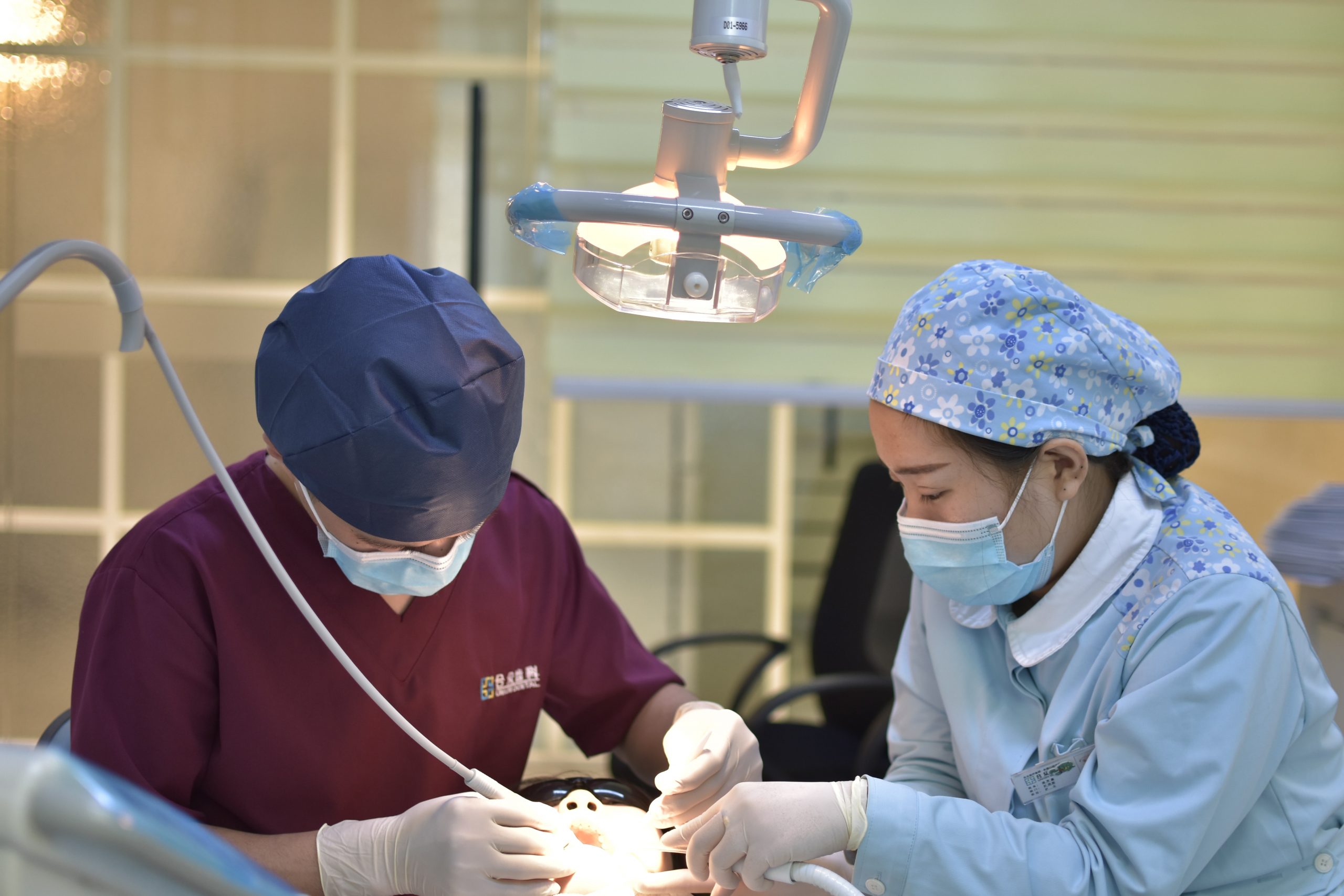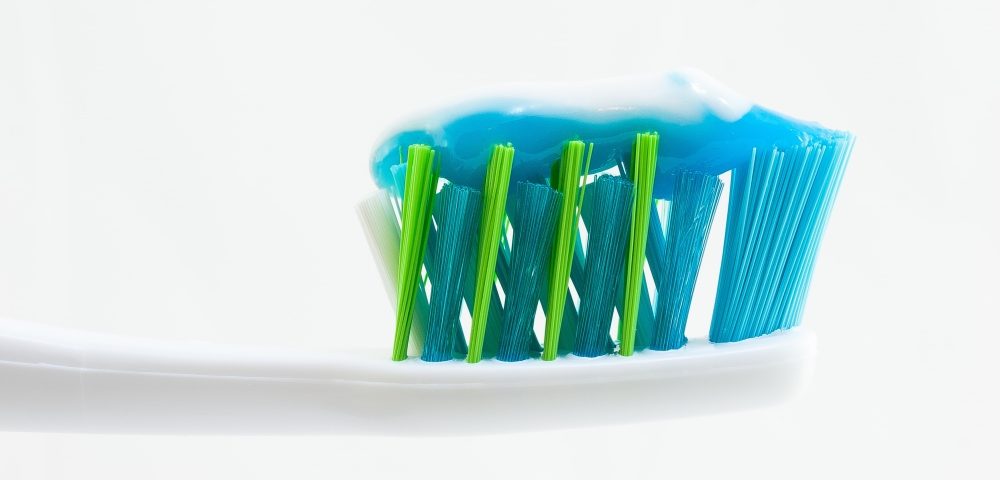
Holiday Prep Checklist: Learn the Top Holiday Dental Tips to Protect My Teeth
October 12, 2020
4 Reasons to Opt for Porcelain Veneers to Improve Your Smile
October 22, 2020National Dental Hygiene Month occurs every October. This timing is perfect because it serves as an excellent chance for dental professionals to remind their patients of some oral hygiene tips before the busy holiday season. Here are some of our top tips for keeping your mouth healthy and your smile bright.
Top Oral Hygiene Tips
Pay Attention to Your Brushing Habits
When you brush your teeth, set a timer for two minutes. If you have not timed yourself for a while, you may find that you don’t brush as long as you need to. You can put on a song that lasts two minutes and brush through the entire number or choose a four-minute song and brush until the half-way point.
When you brush, focus on covering each surface of each tooth. By concentrating on the top, bottom, and sides of each tooth in your mouth, you will be less likely to miss spots when brushing.
Harder bristles are not better. Choose the softest bristle brush available to avoid damaging your gums and teeth. Use a gentle touch when brushing, too. Using too much pressure can cause harm to the enamel.
Ensure that you properly clean your toothbrush. Rinse it off after each use and let it air dry. This practice will prevent bacteria from growing on the bristles, where they could enter your mouth the next time you brush.
Make it a habit at least twice a day. While you ideally should brush after every meal, few people take a toothbrush to work to do this chore after lunch. However, if you cannot brush after lunch, you need to ensure that your brushing habits in the morning and at night are thorough enough to compensate. Don’t cut corners when you brush to keep your teeth healthy.
Flossing Is Crucial to Oral Health
Flossing does more than remove food from between your teeth and is among the essential oral hygiene tips. It serves several purposes for your oral health. First, flossing stimulates your gums. With regular flossing, you can reduce inflammation in your gums. Plus, flossing can prevent plaque formation.
And yes, your dentist or hygienist can tell when you don’t floss regularly. You may have plaque between your teeth, cavities in these areas, or gum inflammation. To keep your mouth healthier, floss daily.
The best type of floss to use is the most traditional thread in a roll. You need at least 18 inches of floss to ensure that you have a fresh area to use between each pair of teeth. When you floss, hold the thread in a C-shape around each tooth to reach between teeth and the front and back sides.
If you cannot use standard floss, flossing picks or water flossers are suitable alternatives. The most important thing about flossing is doing it daily, whichever method you find most comfortable to accomplish.
Water Helps Your Teeth, Too
While drinking enough water can help keep your body and mind in top condition, it can also support good oral health. Even if you don’t think about drinking water as one of the leading oral hygiene tips, it does serve a purpose in preserving the health of your teeth and gums.
Most tap water has extra fluoride added to it to reduce the number of cavities in populations. According to the Centers for Disease Control, fluoridated water supplies have reduced children’s cavities by up to 40% and almost 35% in adults. This number shows how effective fluoridated water is even with fluoride-containing kinds of toothpaste and mouthwashes, improved dental care, and regular tooth brushing and flossing. In fact, fluoridation of water is so important to oral health that the American Dental Association passed a resolution in 2015 supporting the practice.
Drinking water is also important for washing away food and acids from your teeth. If you drink acidic coffee, tea, or sodas between meals, rinse out your mouth with water to help prevent damage to your tooth enamel.
Since saliva is important for neutralizing acids from foods, a dry mouth can make you more likely to get cavities. If you take medications that make your mouth dry or work in an arid environment, make sure that you get enough water daily to prevent your mouth from drying out too much.
Avoid Habits that Can Harm Your Teeth and Mouth
If you currently smoke or use smokeless tobacco, try to cut down or quit your use. These products can increase your chance of oral cancers when used over time. However, they also create problems from short term use. Tobacco users tend to have more problems with enamel erosion and staining and gum health.
Tobacco use is commonly listed among oral hygiene tips as something to avoid, but did you know that you should also avoid oral piercings. Tongue and lip piercings are popular for many people. However, the metal jewelry placed in these piercings can lead to cracked teeth or chipped enamel. In some cases, people may experience gum recession from oral piercings.
Lastly, skip the over-the-counter or mail-order tooth straightening solutions if you need to improve your smile. These products could cause pain or serious harm to your teeth because they do not use dentist-created impressions to form the needed alignment trays. Plus, those who have periodontal disease need to have that condition addressed before using orthodontic products. However, those who choose the do-it-yourself route may neglect to get their oral disease treated first. If you feel concerned about your smile, talk to your dentist about your options.
Limit Sugary and Starchy Snacks
Starchy and sugary foods both start to break down in your mouth, which is why dentists always recommend brushing after eating meals. If you have these foods, try to avoid having them at snack times. Snacking on sugary foods leaves the sugar on your teeth for hours until you brush. However, if you eat sweet or starchy foods with meals right before you brush, your teeth will have less damage.
Schedule and Attend Twice-Yearly Dental Visits
Make sure to schedule visits with your dentist twice a year for cleanings. One of those visits will also include an exam to discuss personalized oral hygiene tips with the dentist. When you set up your twice-yearly visits to the dentist’s office, make sure you don’t skip either appointment. Do whatever possible to ensure that you make it to the appointments. With regular professional care, you can get treatment for problems before you start to experience pain and prevent future problems from occurring, too.
Come See Us at Langley Dental Care
If you live in the Charlotte, NC, area, make Langley Dental Care your provider for dental care. Contact us to set up an appointment today. We’re happy to help you keep your teeth healthy through our oral hygiene tips and professional care.



